I talked to a friend recently who was full of excitement over the news from his employer that the sales team (of which he belongs) was going to receive new smartphones. His excitement was easy to understand: the entire 50 person sales team was getting brand new iPhones that were going to replace their SIP handsets and older PBX desk phones. Considering the cost of smartphones and voice quality concerns, you understand my curiosity about what would drive the company to do such a thing. Given all the changes in the mobile market and where the future of telephony seems to be headed, I tried to follow the company logic.
The Cool Stuff about SmartPhones
In the last decade, not only had the use of cell phone had skyrocketed, but the sophistication and usefulness of these communications devices disrupted the way we conduct business. So much so that there are now traffic laws associated with cell phone use. The only other telephony market to experience as much exposure is VoIP. Just as with cell phones, the VoIP market has been booming for several years and doesn’t seem to be slowing down. The attempt at courtship of the mobile and VoIP markets was a bit volatile at the start (several high profile legal disputes between VoIP and mobile service providers emerged). The two have discovered that they can share the market. Today, the VoIP/cell phone integration option is widespread. You could always add your cell phone as a device to forward your calls using VoIP PBX or simply register your smartphone as a PBX handset running nifty SIP software phone right inside of your smartphone. Now, your mobile device can actually become your business office. Add a docking station for a smartphone and you are down to a single device. A single device so versatile, it can become your store’s point of sale register, desktop phone, heart rate monitor and even a lie detector.
Drawbacks of SmartPhones
Smaller screen size of a smartphone certainly has its limitations and takes some getting used to but if you spend most of your time outside the office it may be a worthy tradeoff.
The other problem is voice clarity. On a stationary network it is typically assured by use of QoS, logical segmentation of voice and data networks using VLANs, MPLS or other networking technologies. When you travel you are at a mercy of a third party network. Poor network quality can result in chopped audio, dropped calls but then again, you are kind of used to that with your cell phone network already. Mobile phone carriers trained us well. When you are in a mobile environment, there is no expectation of voice clarity.
The Client Connection
The most significant business need for mobile VoIP is basic business-to-business communications and staying connected to your clients. This is an area where mobile VoIP can be especially handy. As markets expand, sales and marketing teams take to the skies to fly to other cities, states, and countries to secure new business. Working in tandem with PBX, mobile VoIP allows these individuals to essentially carry their offices with them wherever they travel. In an instant and from a single user interface, employees in remote locations can access and share documents, manage client contact information, and of course—make calls (Wi-Fi or 3G/4G; the choice is yours).
The Data Dilemma
The biggest concern about the future of mobile VoIP is cost of bandwidth. One reason that many individuals and small businesses haven’t made the switch to a smartphone is the cost of data. When choosing to purchase a smartphone from one of the top cell phone providers, an individual can expect to pay an additional $25 or more per month on average for data. While most cellular carriers have nixed unlimited data plans, your bandwidth thirsty video capable smartphone will cut into your monthly data allowance. To avoid the issue altogether, businesses have the option of using Wi-Fi for services that require data usage.
The world of technology is constantly changing and doing so at a very high rate of speed. The Mobile VoIP market appears to be on a path to success. How successful is an unknown, but for now but it’s marriage with VoIP appears to be doing just fine.
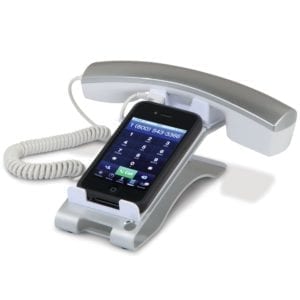 | 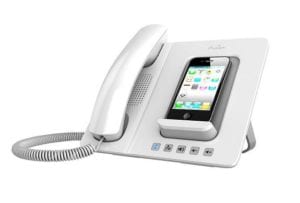 |
| iPhone Desktop Handset | iFusion SmartStation |
 | 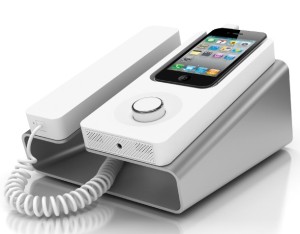 |
| Logic3 PhoneStation | KEE Utility Desk Phone Dock |
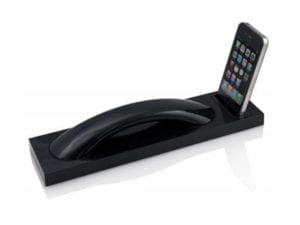 | 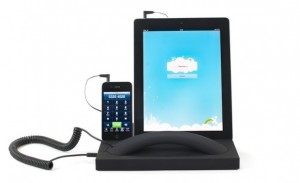 |
| CURVE BT iDOCK | CURVE TWIN |
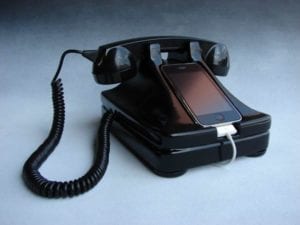 | |
| iPhone Retro | |